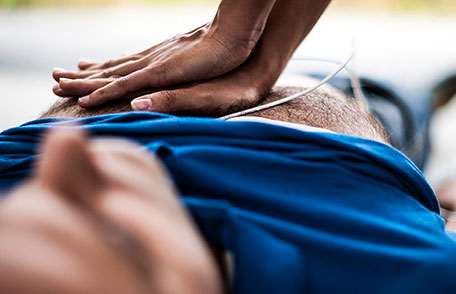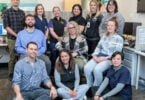Do you know what’s happening to this man in the video? Incredibly, most people who took part in a recent study did NOT.
The study, published this week in the Academic Emergency Medicine journal, found nine out of ten people would not recognize a cardiac arrest if it happened right in front of them.

Dr. David Barbic and his team surveyed more than 230 people around B.C. The research participants watched a video clip of a person demonstrating a cardiac arrest and were asked to identify the medical emergency. Only 11 per cent of participants recognized a cardiac arrest, though nearly half of them had some kind of training in CPR (cardiopulmonary resuscitation).
Opioid overdose also difficult for public to recognize
There seemed to be greater awareness amongst participants about opioid overdoses, but still, six in ten could not correctly identify that medical emergency.
“Resources focused on training bystanders will be of little use if people cannot recognize these emergencies,” said Dr. Barbic, who is also a researcher with the Centre for Health Evaluation and Outcome Sciences (CHÉOS). “There is a need for diverse, repeated opportunities to train people on when to act.”
Timely bystander intervention can save lives
Bystander intervention can play a huge role in survival when a person’s heart or breathing stops. For every minute CPR or defibrillator (AED) application is delayed in the case of a cardiac arrest, the chances of survival with good outcomes decreases by 12 per cent. For an opioid overdose, bystander CPR and naloxone use significantly decrease mortality.

More than half of participants were willing to perform CPR or apply an AED in a hypothetical future cardiac arrest situation. While only about one in six were willing to administer naloxone in the case of an opioid overdose, most were open to the idea of receiving training.
“Our results show that many people want to help but they don’t have the necessary training to know when their help is needed,” he explained “This means we need to think about more focused ways of educating people on how to recognize these emergencies.”


Adapted from the original CHÉOS story.





